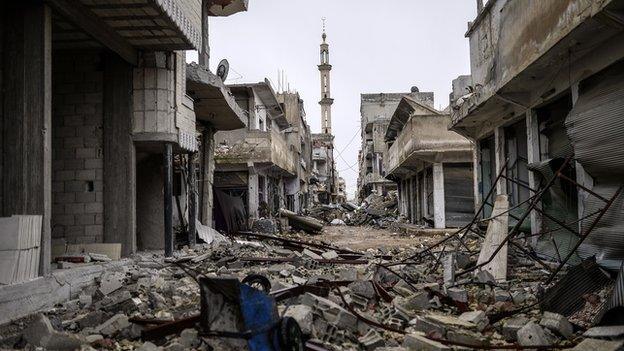Briton Jac Holmes shot in Syria Islamic State battle
- Published
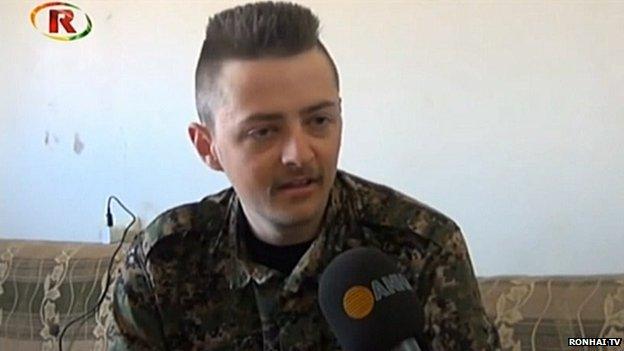
Jac Holmes said the world needed to understand what was happening in Western Kurdistan
A British IT worker who left the UK to fight against Islamic State (IS) was shot during battle, he has revealed.
Jac Holmes, 22, from Bournemouth, left the UK in January to join the People's Protection Unit, or YPG - the main Kurdish force in northern Syria.
Speaking to BBC South from Syria, Mr Holmes said he was shot in the arm as his unit attempted to take control of a village from IS.
Government and police terror experts have warned against going to Syria.
Mr Holmes said: "Me and my group were trying to advance, and then I literally just got shot in the arm. It was a bit of a surprise - obviously I've never been shot before.
"My arm suddenly felt a bit strange and then there was blood everywhere."
He said he spent some time in a Kurdish hospital recovering but is now back at the frontlines, staying with other Kurdish and western fighters in an abandoned village.
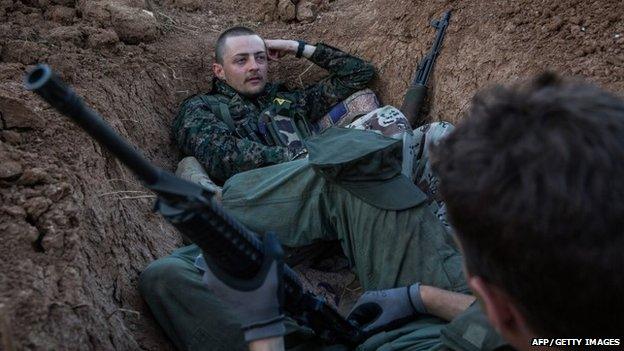
Mr Holmes was photographed on 21 April guarding a post in north west Syria with the YPG
Mr Holmes previously revealed how his interest in the region began in 2011.
He started following Kurdish social media accounts, as well as those of western volunteers fighting with Kurds.
After leaving the UK in January, he crossed into Syria from Iraq to join YPG in its campaign against IS fighters.
"They [IS] are a horrendous terrorist organisation, they enslave, pillage - they think they're justified under their version of Islam.
"Anyone of a sane mind can see there is nothing religious or righteous about it. I can't get over why anyone would actually join a group like Isis," he said.
'Risk of torture'
David Knowles, of the Hampshire Constabulary counter-terrorism team Prevent, said he would discourage anyone from travelling to Syria.
"They could well be committing offences in the UK by fighting overseas and they may well be committing offences in Syria," he said.
"The Syrian government passed a law two years ago to say anybody fighting in their country would be imprisoned for up to 10 years."
Mr Knowles said fighters ran the risk of being imprisoned, being killed or captured, tortured and executed by IS.
The Foreign and Commonwealth Office (FCO) insists British citizens should not travel to any part of Syria, even for humanitarian reasons. It warns they could face arrest on their return and the best way to help is to donate to charities.
Terrorism expert Dr Anthony Richards, of the University of East London, said he thought it was possible to draw a distinction between those fighting for and against Islamic State.
"It is very unlikely that those fighting against Isis [IS] upon their return... are likely to present a domestic threat to the security of the United Kingdom.
"So my feeling is that the British government perspective that they will take a pragmatic approach to this."
- Published7 April 2015
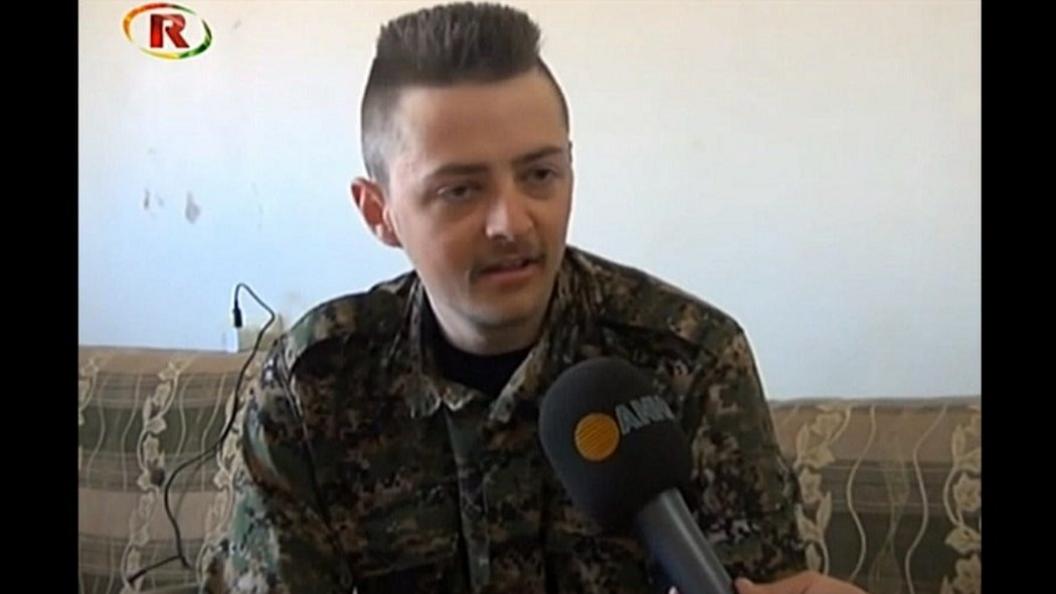
- Published23 February 2015
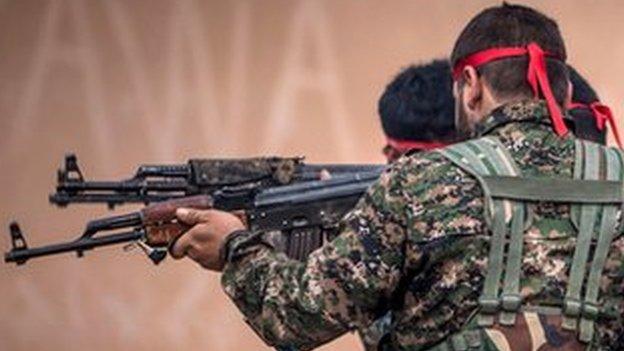
- Published13 February 2015
